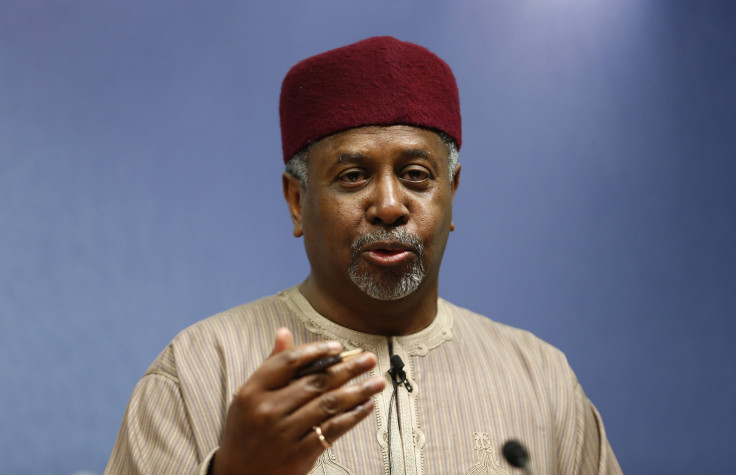Nigeria Elections: Top Official Says Ballot Should Be Delayed After Voter ID Problems

The race to prepare Nigeria for its upcoming elections may end up hitting a snag. Nigerian National Security Adviser Mohammed Sambo Dasuki said next month's contests should be delayed to give organizers additional time to distribute voting cards. Because Nigeria had to re-register voters this month after technical issues at the country’s electoral commission wrongly struck around 10 million people from voter rolls, the adviser to President Goodluck Jonathan said in London on Thursday that the government needed more time to distribute biometric ID cards to those voters, according to Reuters.
Opposition politicians decried the biodata collection failures, which decreased the number of registered voters from 70.4 million to 58.9 million, Reuters reported. A spokesman for the commission claimed that the final tally of permanent voter ID cards was accurate and had captured everyone, though there is a discrepancy of around 1 million people who failed to re-register. The voter ID cards were introduced by the Jonathan administration to help tackle voter fraud issues such as ballot box stuffing that have occurred in previous Nigerian elections.
Preparations for the Feb. 14 election between Jonathan and his leading challenger, former ruler Muhammadu Buhari, has also been complicated by the Boko Haram crisis in the north of the country. The displacement of more than 1 million people raises the possibility that the many Nigerians fleeing the wave of violence by the militant Islamist group will lose the right to vote due to an electoral law that requires voters to cast ballots in their home constituencies. There are also serious doubts over whether voting will even take place in the swaths of the country overrun by militants, according to German broadcaster Deutsche Welle.
On the invitation of Nigeria’s government, the European Union has deployed an election observation mission to the country ahead of the upcoming political contest. "The EU stands with Nigerians in their efforts to ensure democratic elections and respect of Rule of Law,” the body’s foreign affairs chief Federica Mogherini said in a statement on Thursday. “This is all the more critical as the country is confronted with the challenge of fighting Boko Haram terrorism.” The delegation has already overseen three of Nigeria’s past elections. Though the 2011 election that brought Jonathan to power was widely seen as the fairest in Nigeria’s history, postelection violence still left more than 800 people dead, according to Human Rights Watch.
© Copyright IBTimes 2025. All rights reserved.






















